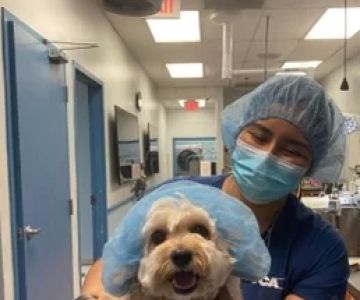Can You Be a Veterinarian with a Misdemeanor? A Detailed Exploration
- What Is a Misdemeanor?
- Impact of a Misdemeanor on Veterinary Licensing
- How to Proceed If You Have a Misdemeanor
- Real-Life Example: Overcoming Legal Barriers in Veterinary Profession
- Alternatives and Options for Aspiring Veterinarians
1. What Is a Misdemeanor?
To understand whether you can pursue a career as a veterinarian with a misdemeanor, it's important to first grasp what a misdemeanor is. A misdemeanor is typically a criminal offense that is considered less severe than a felony but still carries legal consequences. Misdemeanors can include offenses such as petty theft, simple assault, or certain drug-related crimes. While misdemeanors do not carry the same severe penalties as felonies, they can still impact your career prospects, particularly in regulated fields like veterinary medicine.
2. Impact of a Misdemeanor on Veterinary Licensing
The journey to becoming a veterinarian is long and requires a strong academic background, clinical experience, and the successful completion of licensing exams. However, for those with a misdemeanor conviction, the path can become more complicated. Most veterinary licensing boards conduct background checks to assess an applicant's moral character and fitness to practice. A misdemeanor could potentially be flagged during this process, which might raise concerns about your suitability for the profession.
While a misdemeanor doesn't automatically disqualify you from becoming a veterinarian, it could lead to additional scrutiny. In some cases, certain misdemeanors might prevent you from obtaining a veterinary license, especially if the crime involves dishonesty or animal cruelty. On the other hand, some states and jurisdictions may be more lenient, especially if the offense was minor and occurred a long time ago.
3. How to Proceed If You Have a Misdemeanor
If you have a misdemeanor on your record and are hoping to become a veterinarian, it's important to know that there are steps you can take to improve your chances of being licensed. Here are some key steps to follow:
- Be Honest About Your Past: Most licensing boards require full disclosure of criminal history. Failing to disclose your misdemeanor could result in a denial of your license. Honesty is always the best policy.
- Consider Expunging Your Record: In some cases, you may be eligible to have your misdemeanor expunged or sealed, which could remove it from public record and prevent it from showing up on background checks.
- Demonstrate Rehabilitation: If your misdemeanor involved a serious offense, it's crucial to show that you've rehabilitated. This can be done through personal references, proof of community service, or letters of recommendation from mentors or employers.
- Consult with a Lawyer: If you're unsure how your misdemeanor might impact your licensing process, it's a good idea to consult with a lawyer who specializes in criminal law and veterinary licensing. They can provide guidance tailored to your specific situation.
4. Real-Life Example: Overcoming Legal Barriers in Veterinary Profession
Let me share a story of a colleague of mine, Sarah, who had a misdemeanor related to a minor theft charge from her early twenties. After completing her veterinary degree and internship, she was concerned that her criminal record might prevent her from obtaining a license. However, Sarah was determined to pursue her passion for animals, so she took proactive steps. She had her record expunged, and she provided strong evidence of her rehabilitation through character references and proof of community service. As a result, the licensing board gave her the green light to practice veterinary medicine. This real-life example shows that it is indeed possible to overcome such challenges with persistence and the right approach.
5. Alternatives and Options for Aspiring Veterinarians
If you find that your misdemeanor is preventing you from obtaining a veterinary license, there are still other ways to work within the animal care field. Here are some alternatives to consider:
- Veterinary Technician: Becoming a veterinary technician allows you to work closely with animals and veterinarians without requiring a full veterinary license. This is an excellent option for those who are passionate about animal care but face legal barriers.
- Animal Care Worker: There are many other roles within the animal care industry that don't require a veterinary license, such as animal groomers, trainers, and shelters staff.
- Veterinary Sales or Marketing: If you have an interest in veterinary products or services, working in sales or marketing for veterinary companies could be a fulfilling career.











